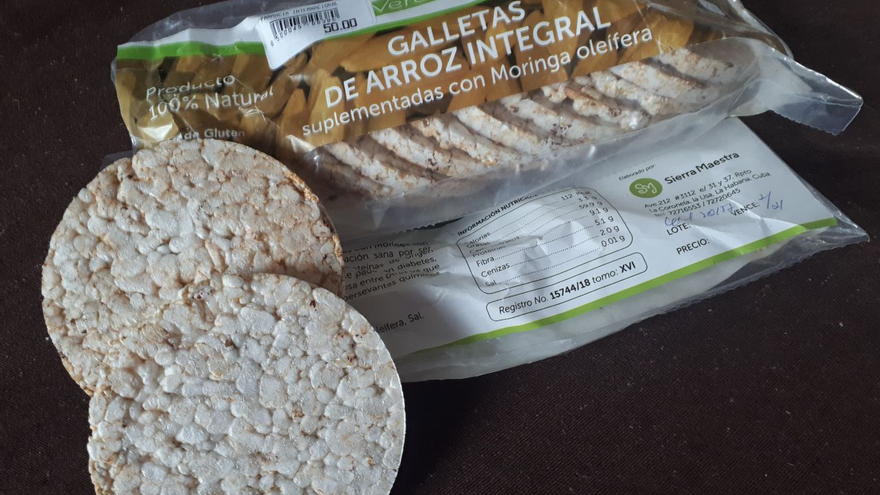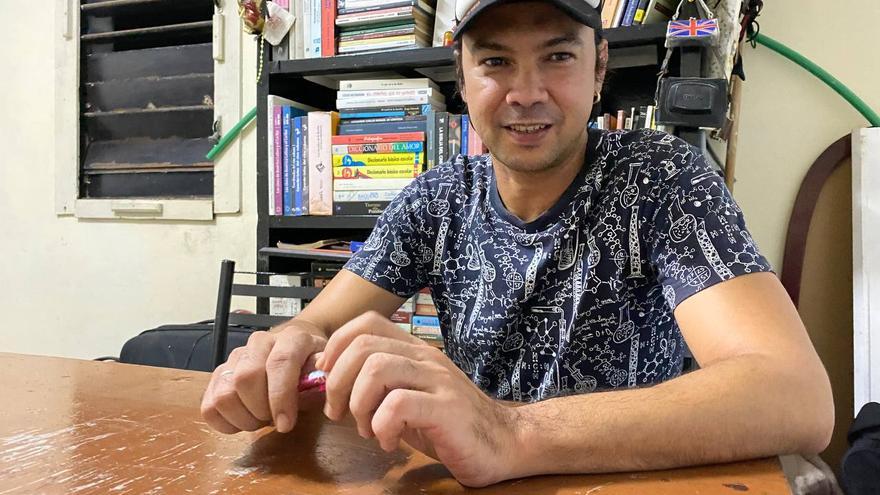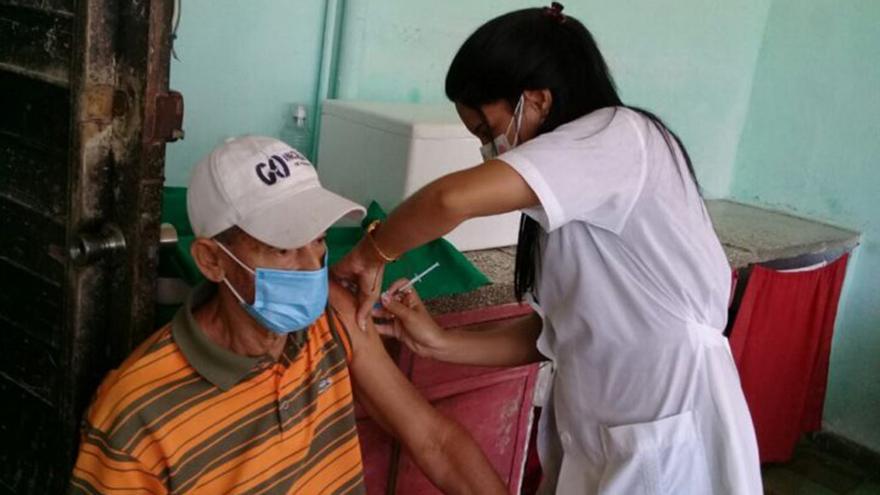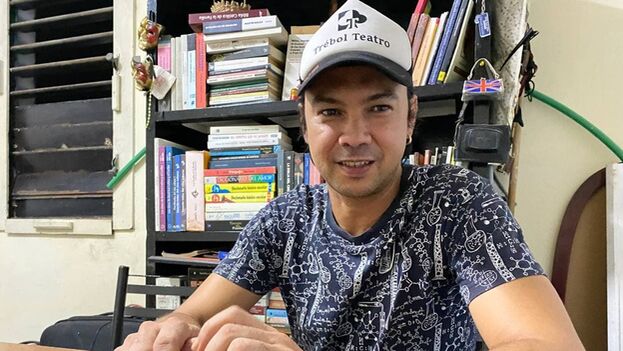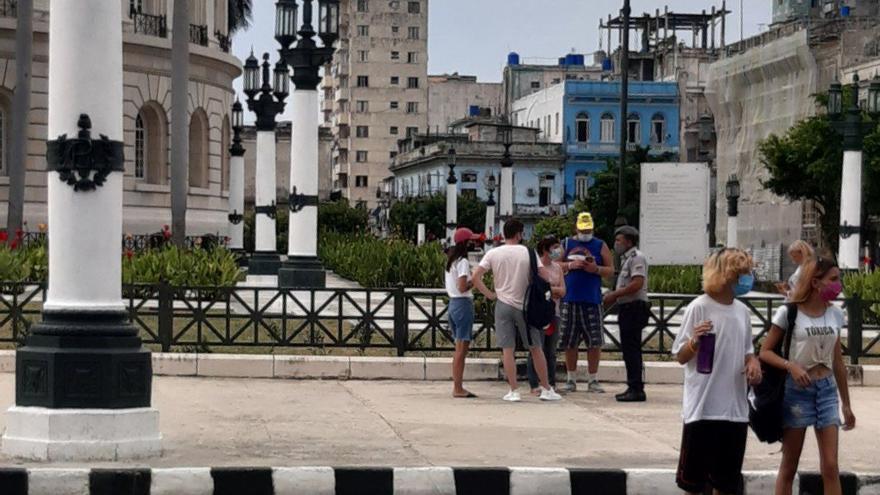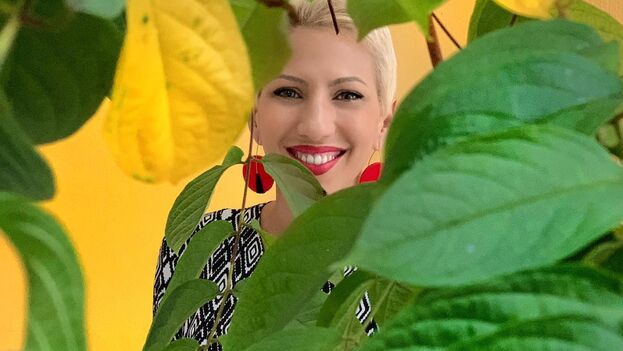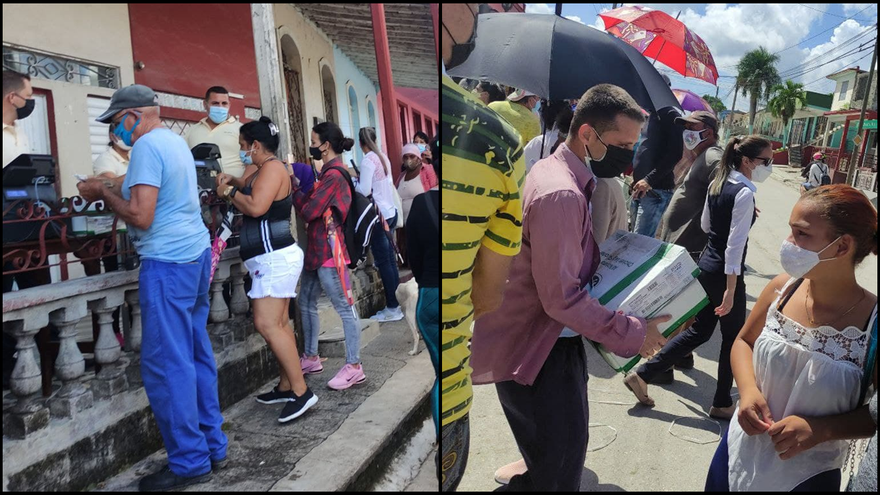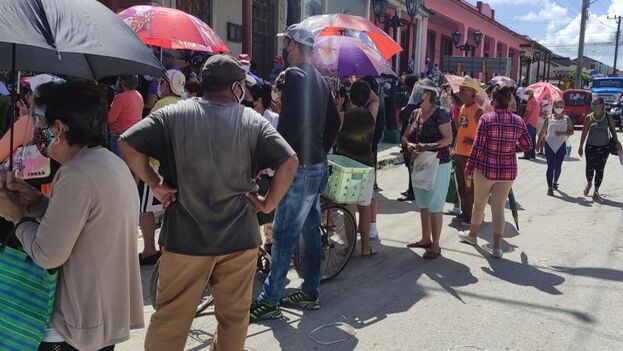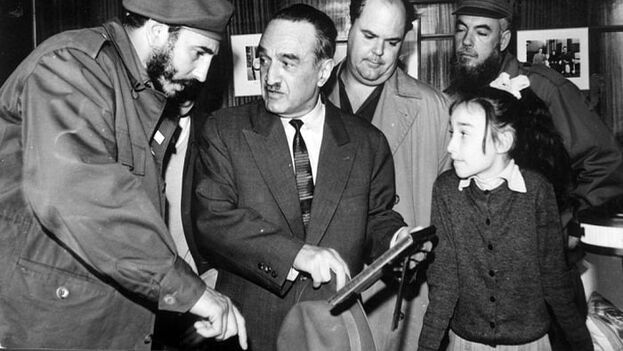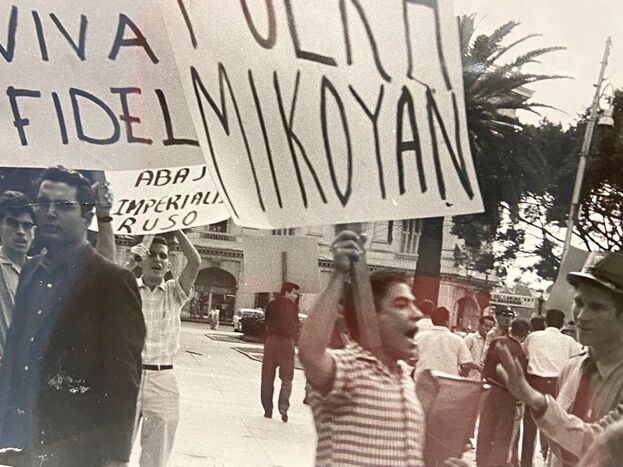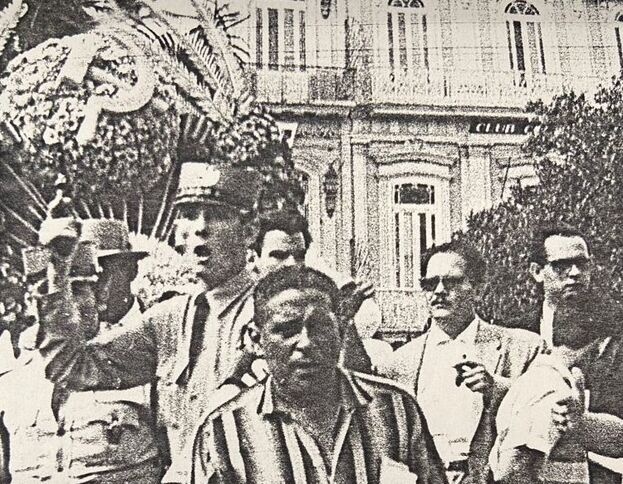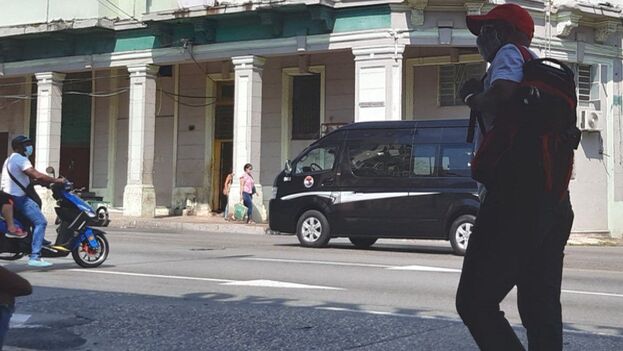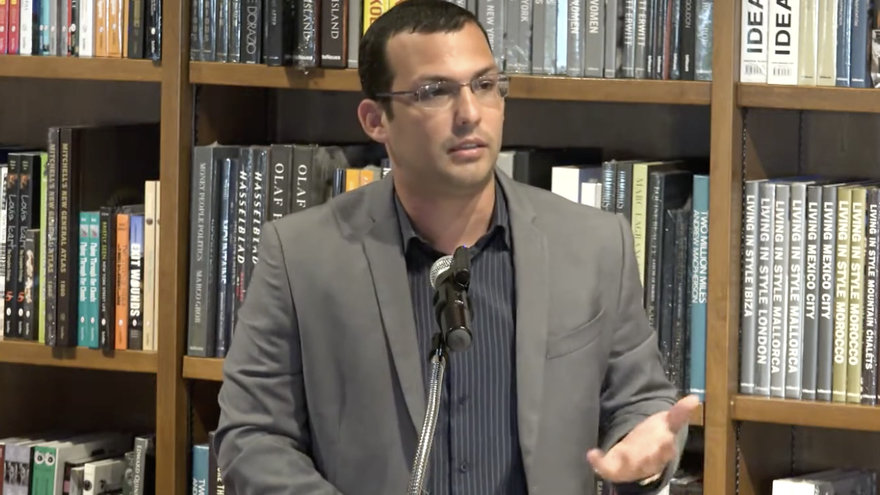This was not a final goodbye; González placed a condition on the reopening–that in Cuba “the rights of all Cubans to think and to speak be respected.” On this occasion, she talks to 14ymedio about the causes for such a drastic decision, her activism, and the call to march on November 15th.
entrepreneur for years, and in that sense I can count on a lot of support from the community.
What happened after July 11, when they began to tell that string of lies on national television, is what led me to engage in hypercritical activism
14ymedio. Saying goodbye to an entrepreneurial project that still has a long way to go is like “pulling the rug out from under” in the middle of this crisis. What was your internal process when making the decision to close Amarillo B&B?
González. My economic situation is not among the worst in Cuba at the moment. If something really hurt me, it was having to say goodbye to the workers, people I have been with for five to six years. One of them is a single mother of three children, and her only job is as a cleaning assistant in the Municipal Assembly of the People’s Power, where she makes just 1,900 pesos. That shocked me. However, I received their support, and I made a commitment to them to find other ways in which they could make money, for example by recommending them to other businesses that remain open in Santa Clara.
On the other hand, I consider the way I act and my vision at the moment to be fairly coherent. I try to use my visibility to make the world understand that there is a dictatorship in Cuba and that without rights we cannot live or carry out any activity of any kind.
14ymedio: What was your path to arrive at this civic attitude? Do you remember a day, a moment or any circumstance that made you cross the red line and engage in visible activism?
González. At the beginning of this year, they decided to limit economic activity in Santa Clara. At that moment I began to strongly question the municipal and provincial government. These questions earned me the occasional appointment with the State Security, in which they questioned my position; not so much because of the things I said, but the way I was saying them, when I’d call them “asses with claws,” or when I rebuked them saying that a particular cadre within the Party is not prepared to lead.
But fundamentally, what led me to speak so directly and to engage in hypercritical activism, basically with the aim of telling the truth which they do not allow, was what happened after July 11, when they began to tell that string of lies on national television and I heard one neighbor tell another that those who had taken to the streets were vandals and criminals. That seemed very unfair to me and I felt that I had to tell the truth. Once you enter into this there is no going back, you can do it and say I am not going to talk anymore, but I feel that it is my right because I feel free and it is necessary for us in Cuba to finally understand and perceive ourselves as citizens with rights and act accordingly. Within that recognition of our rights lies the end of the dictatorship and our ability to achieve democracy.
On the other hand, I feel supported following recent events, which occurred at the international level in the political sphere, such as President Lacalle’s words at CELAC and the European Union’s declaration regarding human rights in Cuba
14ymedio: Since you took on that position, what have been the personal and family costs?
González: I am lucky to have friends and family who in a certain way share my thinking or at least respect it and do not question it. I have only had one confrontation with a relative, but coincidentally it is one of these people who say that families do not subtract or divide, but rather add and multiply, and we left it there. My friends, either completely share my thinking and what I say, or they respect it and keep it on the sidelines, but without refusing to interact with me or anything like that.
The fundamental cost is the guilt: the guilt that my mother cannot have a normal life as she did before July 11th, the guilt of seeing her worried or sad because my brother is also in danger. He just graduated medical school; he is an excellent person and very dedicated to his profession, but he is also in danger of being questioned because of the things his sister says. He of course defends me, although he is among those who think that no one can topple this.
14ymedio: 15N [November 15] is already causing nervousness in the regime, but it [the regime] also seems to be preparing “all in” for a confrontation. Aren’t you afraid of a massacre, an unpredictable social conflict or a new Black Spring?
González: Perhaps due to my low perception of risk, which is innate in me, the fear dissipates more and more. Also because I feel protected by all the visibility we are getting at the international level, by all the press coverage we are getting, for example, this is one of five interviews I have today, all of them mainly about 15N. We are receiving a lot of support from independent Cuban media and foreign media. On the other hand, I feel supported following recent events, which occurred at the international level in the political sphere, such as President Lacalle’s words at CELAC and the European Union’s declaration regarding human rights in Cuba on September 16th, and more things that keep coming up.
Work is being carried out from within Cuba, but also from outside. In other words, I perceive a willingness of the Cuban diaspora, of the Cuban exile community to support us with their own political activism, perhaps some more than others, but they support this 15N initiative, and that greatly protects us and will prevent a possible massacre, because the world is waiting.
14ymedio: What are you afraid of when you think of 15N? What excites you most about that date?
González: My greatest fear is that they will not allow me to leave the house that day, and in that sense I think it is dangerous, because even as we appeal to people to march as a recognition of their rights, there is this kind of caudillo mentality which is chronic in Cuban society. What excites me most, on the other hand, is that whatever happens in Cuba on 15N will be a victory for civil society, for citizens, because either the march demanding their rights will go well, or it will be a good demonstration that there is a dictatorship here that does not permit minorities to have right, which is the reason to demonstrate on 15N, we have rights.
Only with rights and freedom can we make Cuba a prosperous nation, because these necessarily lead to democracy and this is what will allow Cuba to never again be ruled by inept people.
14ymedio: Leave? Stay? Any advice for a restless entrepreneur eager to prosper and also have civil liberties?
González: The only valid advice for any Cuban seeking prosperity, whether an entrepreneur or even a state worker, is to fight for their rights, to raise their voices, less fear and more solidarity. Fear condemns our people, solidarity is saving us, it is helping us to achieve rights for all. Only with rights and freedom can we make Cuba a prosperous nation, because these necessarily lead to democracy and this is what will allow Cuba to never again be ruled by inept people, as it has been for the last 62 years.
14ymedio: You use the word “yellow” not only to name your business: you also have a Telegram channel called Amarillo y Medio [Yellow and a Half], why?
González. The story is not that interesting; it’s basically because we had yellow items in the house and we liked that word and so we decided to use it. I speak of “us” because it is a business that I share with my boyfriend, Antoine Hernández. In August 2019 we decided to register amarillo [yellow] with the Industrial Property Office (IPO) and we have been in that process ever since.
The Telegram channel is fundamentally for entrepreneurs, and I named it Amarillo y Medio [Yellow and a Half] because it’s a communication channel for Cuban entrepreneurs. I believe that until then, with the exception of two or three initiatives, which I do not trust much as they are too close to the dictatorship, entrepreneurs did not have their own space. Then, after July 11th, I decided to include space for debate, because most of the entrepreneurs who participate in the channel are interested in issues related to citizenship. “Saily de Amarillo,” because I’m Saily from the Amarillo businesses, and also, it just sounds good.
Translated by: Silvia Suárez
____________
COLLABORATE WITH OUR WORK: The 14ymedio team is committed to practicing serious journalism that reflects Cuba’s reality in all its depth. Thank you for joining us on this long journey. We invite you to continue supporting us by becoming a member of 14ymedio now. Together we can continue transforming journalism in Cuba.

![]() 14ymedio, Havana, 15 October 2021 — It is the fourth time that the defense of Luis Robles Elizastigui, known as “the young man with the placard,” has been denied a change in his confinement. In a document provided to 14ymedio by his brother, Landy Fernández Elizastigui, the Provincial Court of Havana considers that “the reasons for this measure have not changed,” and therefore, they will not release Robles before his trial.
14ymedio, Havana, 15 October 2021 — It is the fourth time that the defense of Luis Robles Elizastigui, known as “the young man with the placard,” has been denied a change in his confinement. In a document provided to 14ymedio by his brother, Landy Fernández Elizastigui, the Provincial Court of Havana considers that “the reasons for this measure have not changed,” and therefore, they will not release Robles before his trial.
